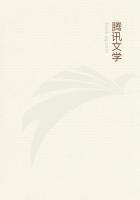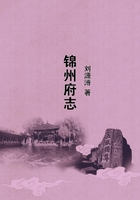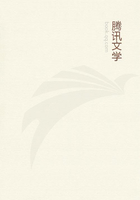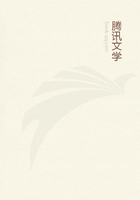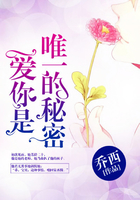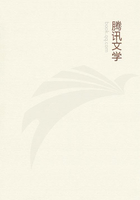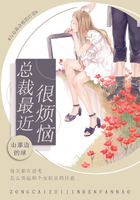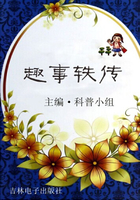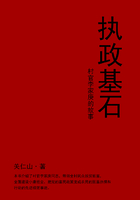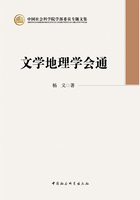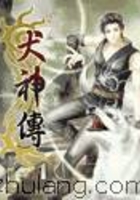Of nature Tennyson was scrupulously observant till his very latest days, eagerly noting, not only "effects," as a painter does, but their causes, botanical or geological. Had man been scientific from the beginning he would probably have evolved no poetry at all;material things would not have been endowed by him with life and passion; he would have told himself no stories of the origins of stars and flowers, clouds and fire, winds and rainbows. Modern poets have resented, like Keats and Wordsworth, the destruction of the old prehistoric dreams by the geologist and by other scientific characters. But it was part of Tennyson's poetic originality to see the beautiful things of nature at once with the vision of early poetic men, and of moderns accustomed to the microscope, telescope, spectrum analysis, and so forth. Thus Tennyson received a double delight from the sensible universe, and it is a double delight that he communicates to his readers. His intellect was thus always active, even in apparent repose. His eyes rested not from observing, or his mind from recording and comparing, the beautiful familiar phenomena of earth and sky. In the matter of the study of books we have seen how deeply versed he was in certain of the Greek, Roman, and Italian classics. Mr Jowett writes: "He was what might be called a good scholar in the university or public-school sense of the term, . . . yet I seem to remember that he had his favourite classics, such as Homer, and Pindar, and Theocritus. . . . He was also a lover of Greek fragments. But I am not sure whether, in later life, he ever sat down to read consecutively the greatest works of AEschylus and Sophocles, although he used occasionally to dip into them." The Greek dramatists, in fact, seem to have affected Tennyson's work but slightly, while he constantly reminds us of Virgil, Homer, Theocritus, and even Persius and Horace. Mediaeval French, whether in poetry or prose, and the poetry of the "Pleiad"seems to have occupied little of his attention. Into the oriental literatures he dipped--pretty deeply for his Akbar; and even his Locksley Hall owed something to Sir William Jones's version of "the old Arabian Moallakat." The debt appears to be infinitesimal. He seems to have been less closely familiar with Elizabethan poetry than might have been expected: a number of his obiter dicta on all kinds of literary points are recorded in the Life by Mr Palgrave. "Sir Walter Scott's short tale, My Aunt Margaret's Mirror (how little known!), he once spoke of as the finest of all ghost or magical stories." Lord Tennyson adds, "The Tapestried Chamber also he greatly admired." Both are lost from modern view among the short pieces of the last volumes of the Waverley novels. Of the poet's interest in and attitude towards the more obscure pyschological and psychical problems--to popular science foolishness--enough has been said, but the remarks of Professor Tyndall have not been cited:-My special purpose in introducing this poem, however, was to call your attention to a passage further on which greatly interested me.
The poem is, throughout, a discussion between a believer in immortality and one who is unable to believe. The method pursued is this. The Sage reads a portion of the scroll, which he has taken from the hands of his follower, and then brings his own arguments to bear upon that portion, with a view to neutralising the scepticism of the younger man. Let me here remark that I read the whole series of poems published under the title "Tiresias," full of admiration for their freshness and vigour. Seven years after I had first read them your father died, and you, his son, asked me to contribute a chapter to the book which you contemplate publishing. I knew that I had some small store of references to my interview with your father carefully written in ancient journals. On the receipt of your request, Ilooked up the account of my first visit to Farringford, and there, to my profound astonishment, I found described that experience of your father's which, in the mouth of the Ancient Sage, was made the ground of an important argument against materialism and in favour of personal immortality eight-and-twenty years afterwards. In no other poem during all these years is, to my knowledge, this experience once alluded to. I had completely forgotten it, but here it was recorded in black and white. If you turn to your father's account of the wonderful state of consciousness superinduced by thinking of his own name, and compare it with the argument of the Ancient Sage, you will see that they refer to one and the same phenomenon.
And more, my son! for more than once when ISat all alone, revolving in myself The word that is the symbol of myself, The mortal limit of the Self was loosed, And past into the Nameless, as a cloud Melts into heaven. I touch'd my limbs, the limbs Were strange, not mine--and yet no shade of doubt, But utter clearness, and thro' loss of Self The gain of such large life as match'd with ours Were Sun to spark--unshadowable in words, Themselves but shadows of a shadow-world.
Any words about Tennyson as a politician are apt to excite the sleepless prejudice which haunts the political field. He probably, if forced to "put a name to it," would have called himself a Liberal.

